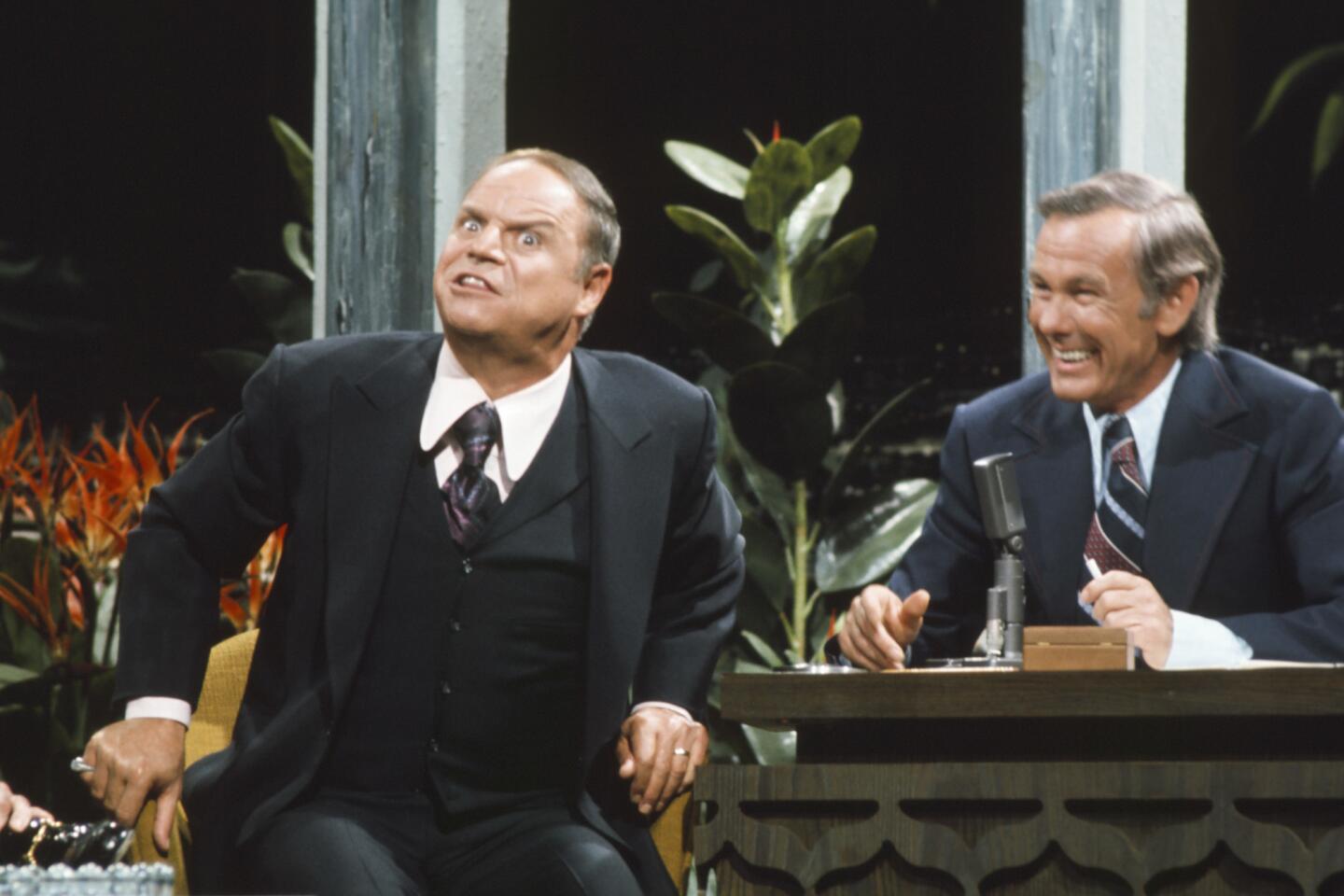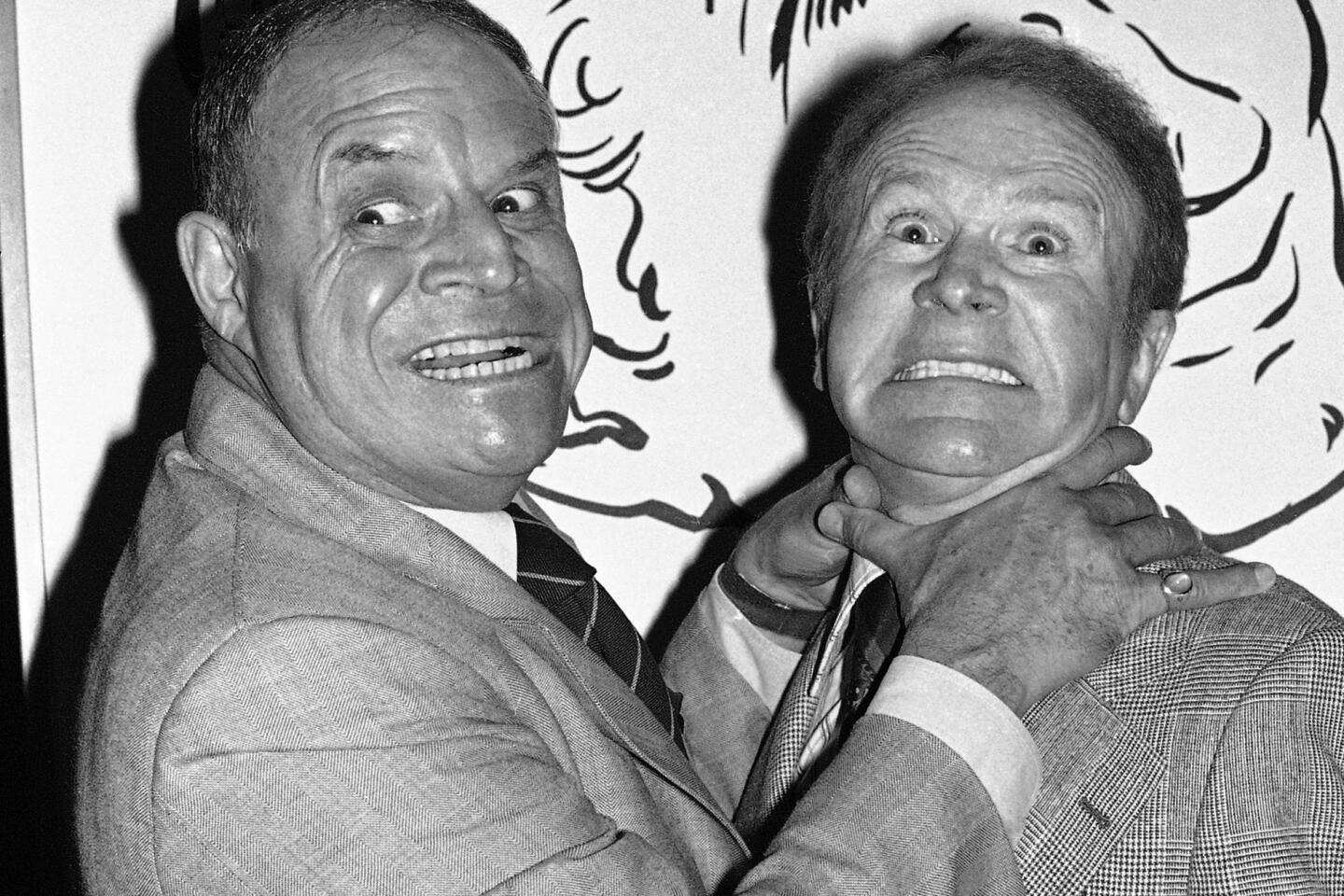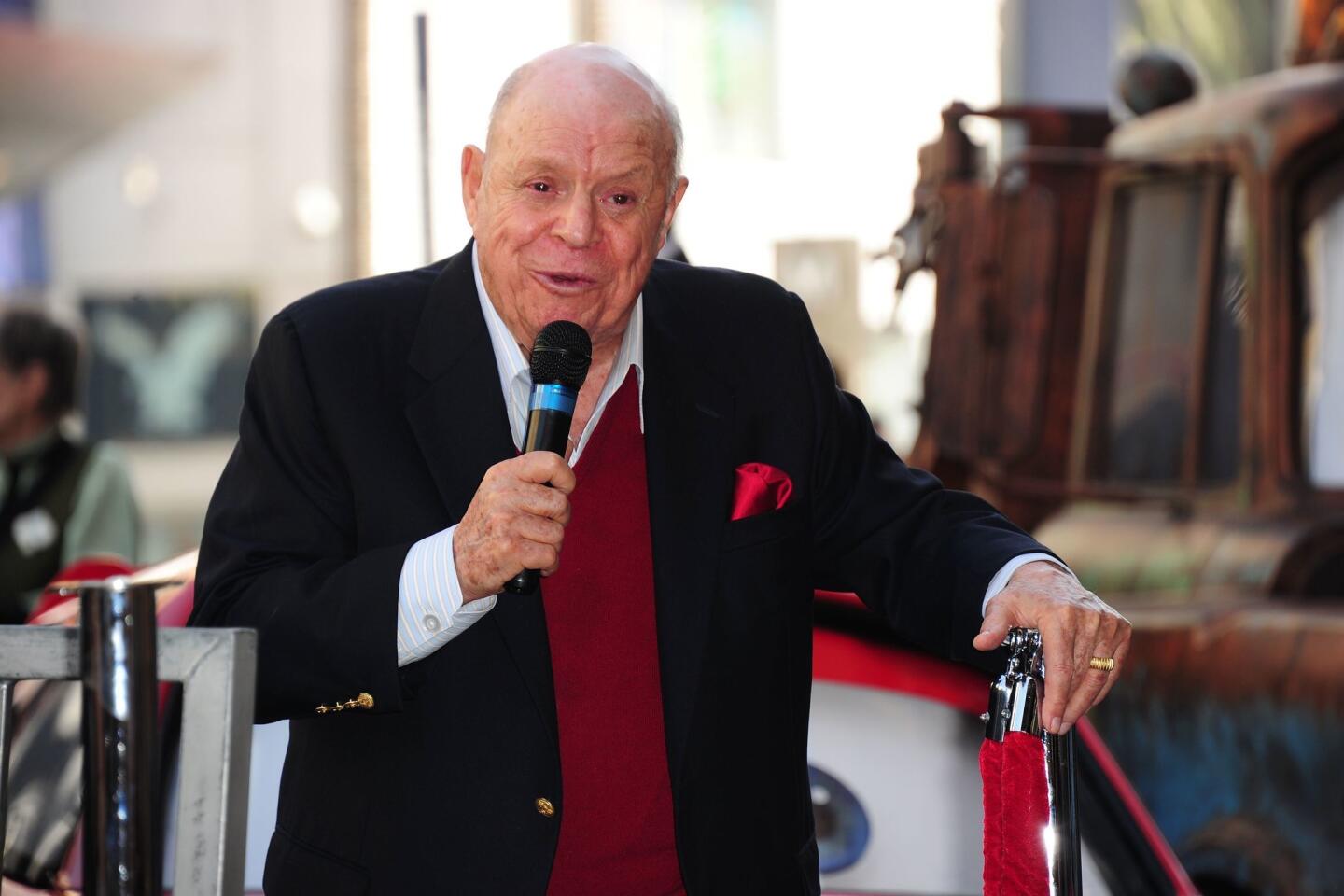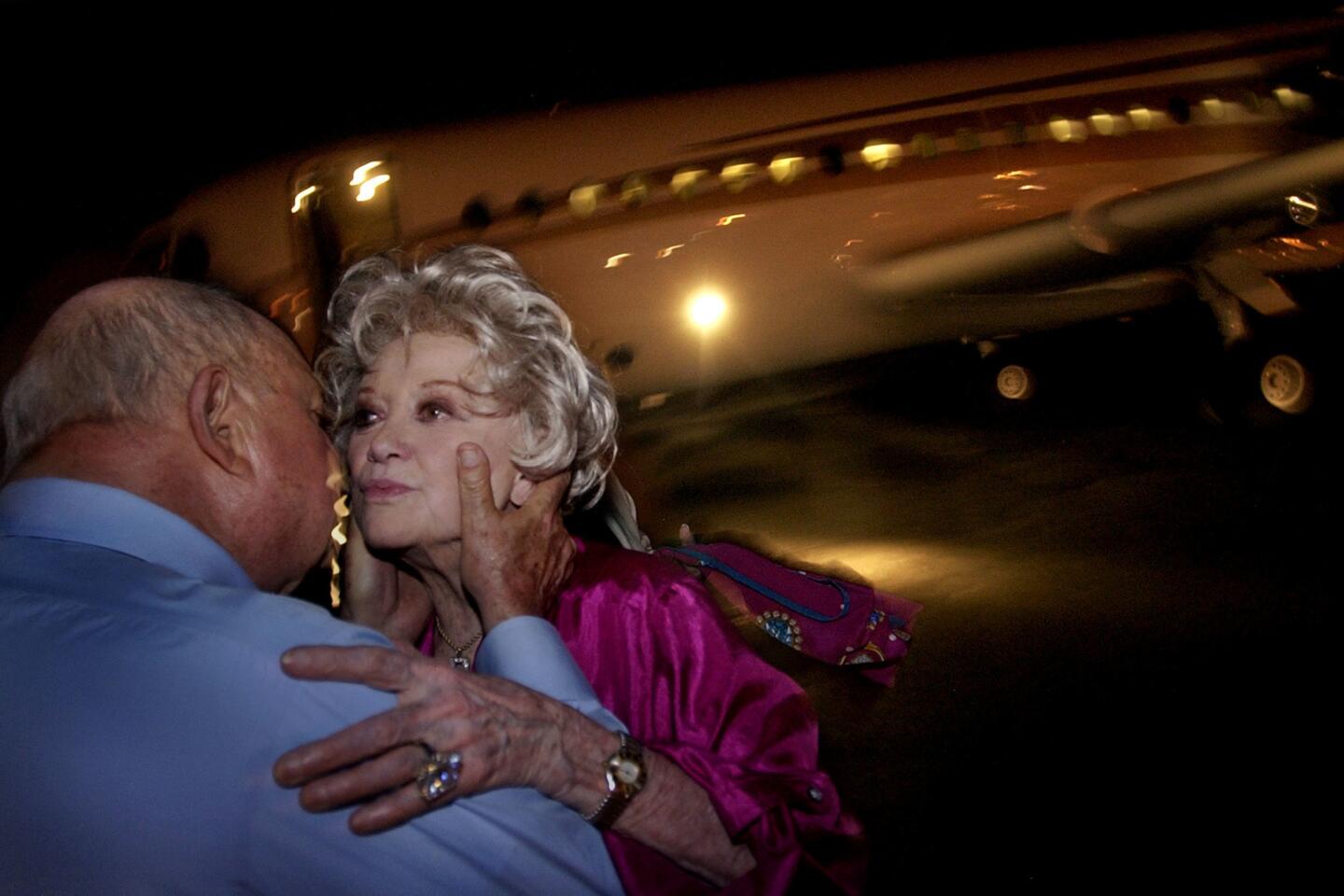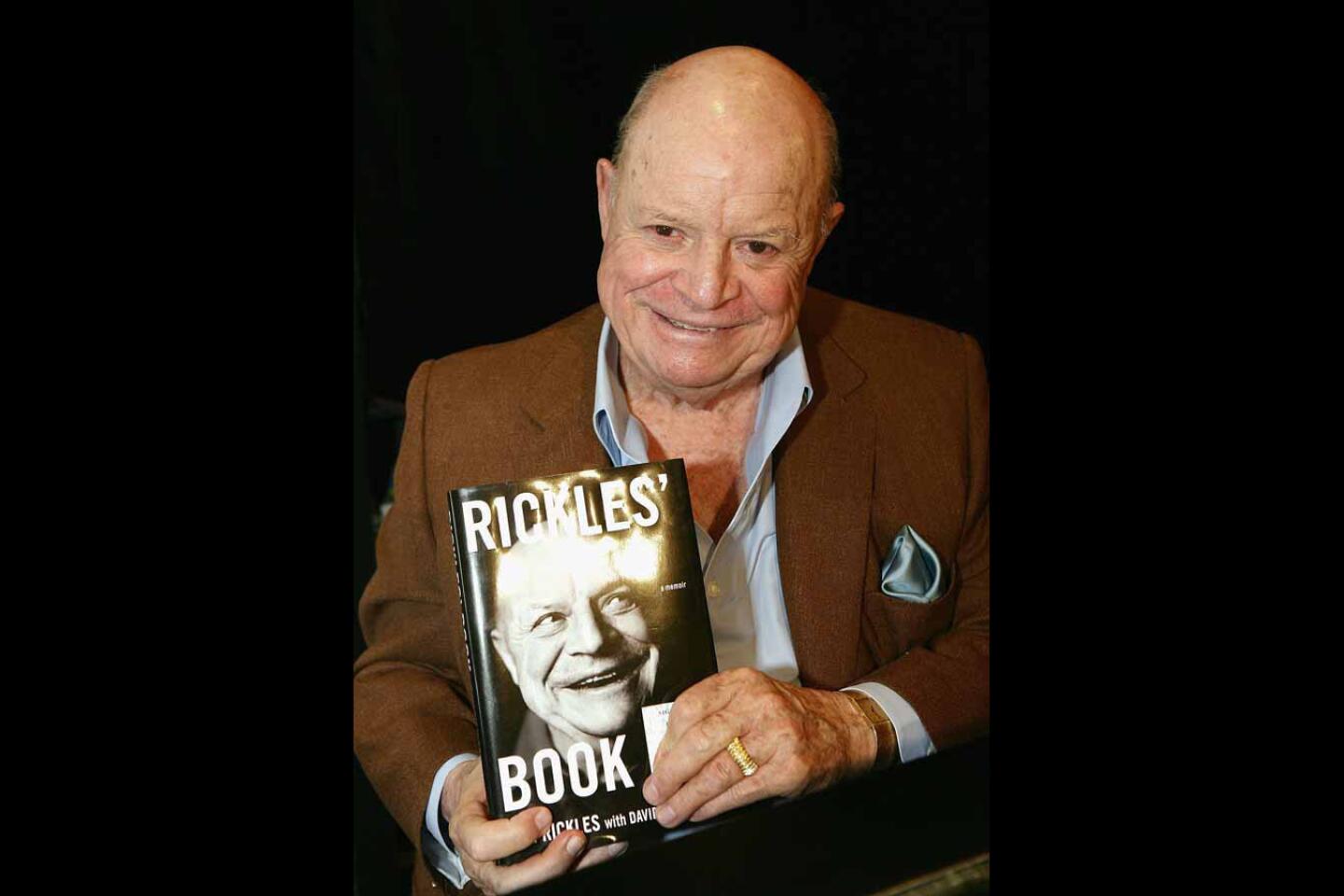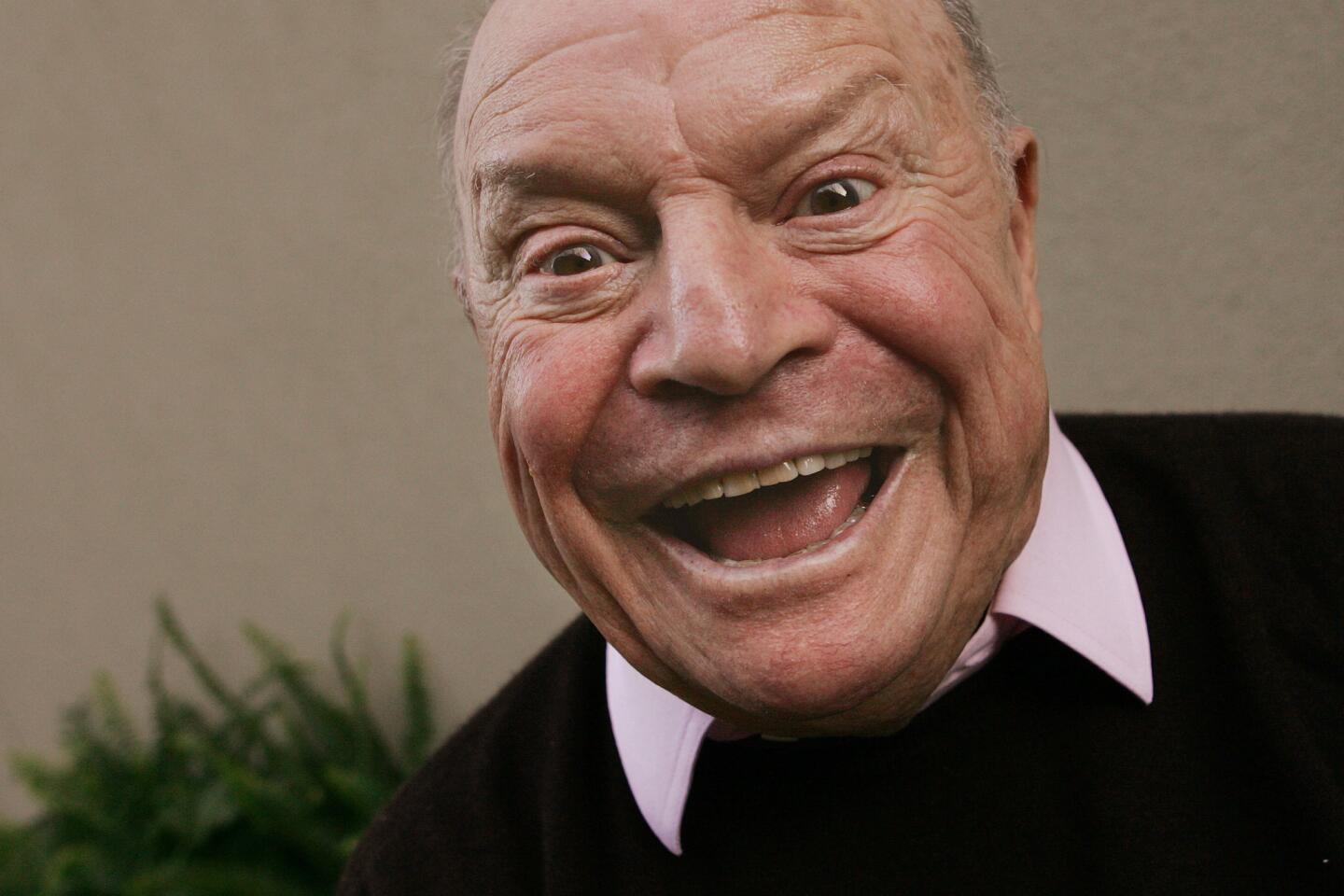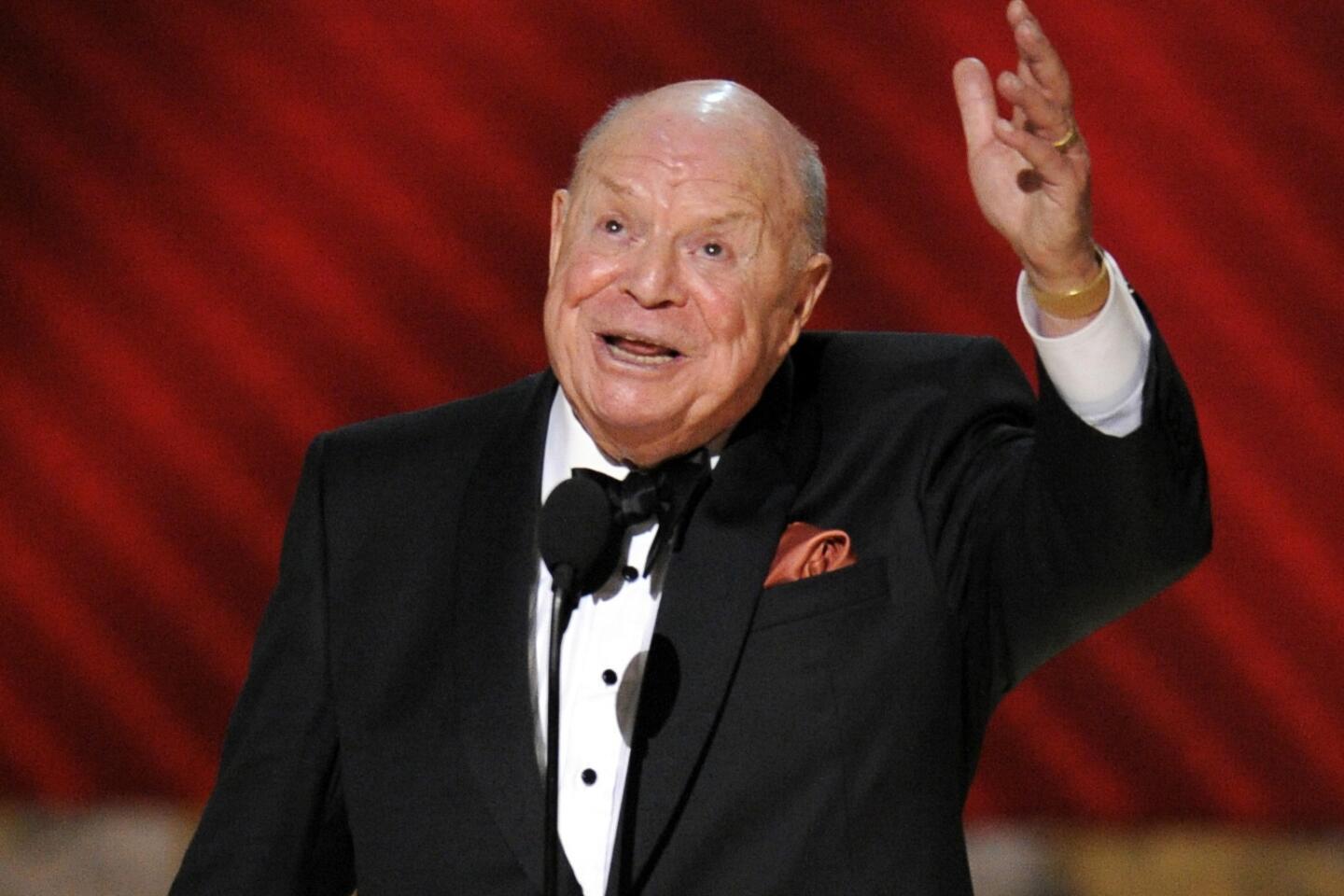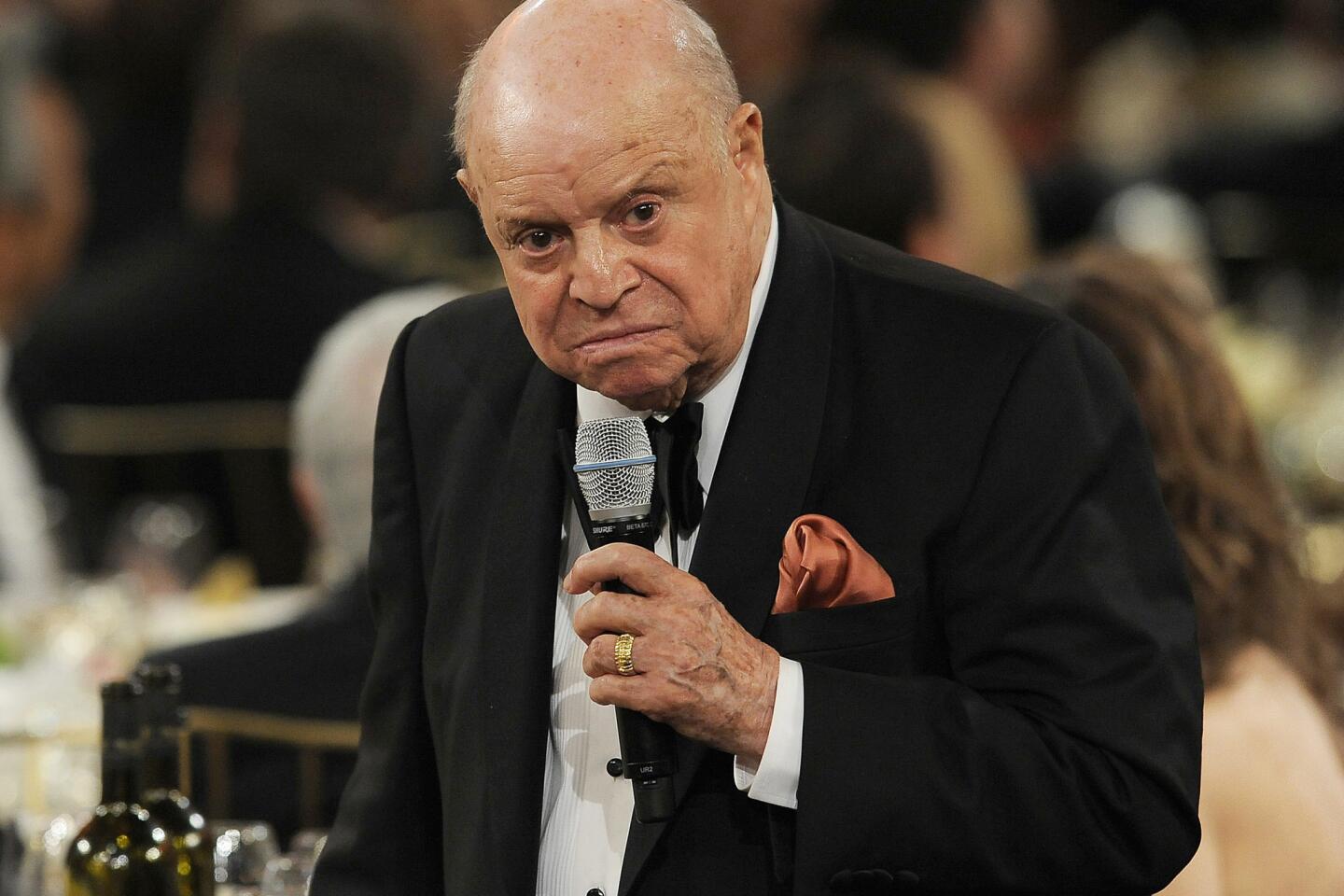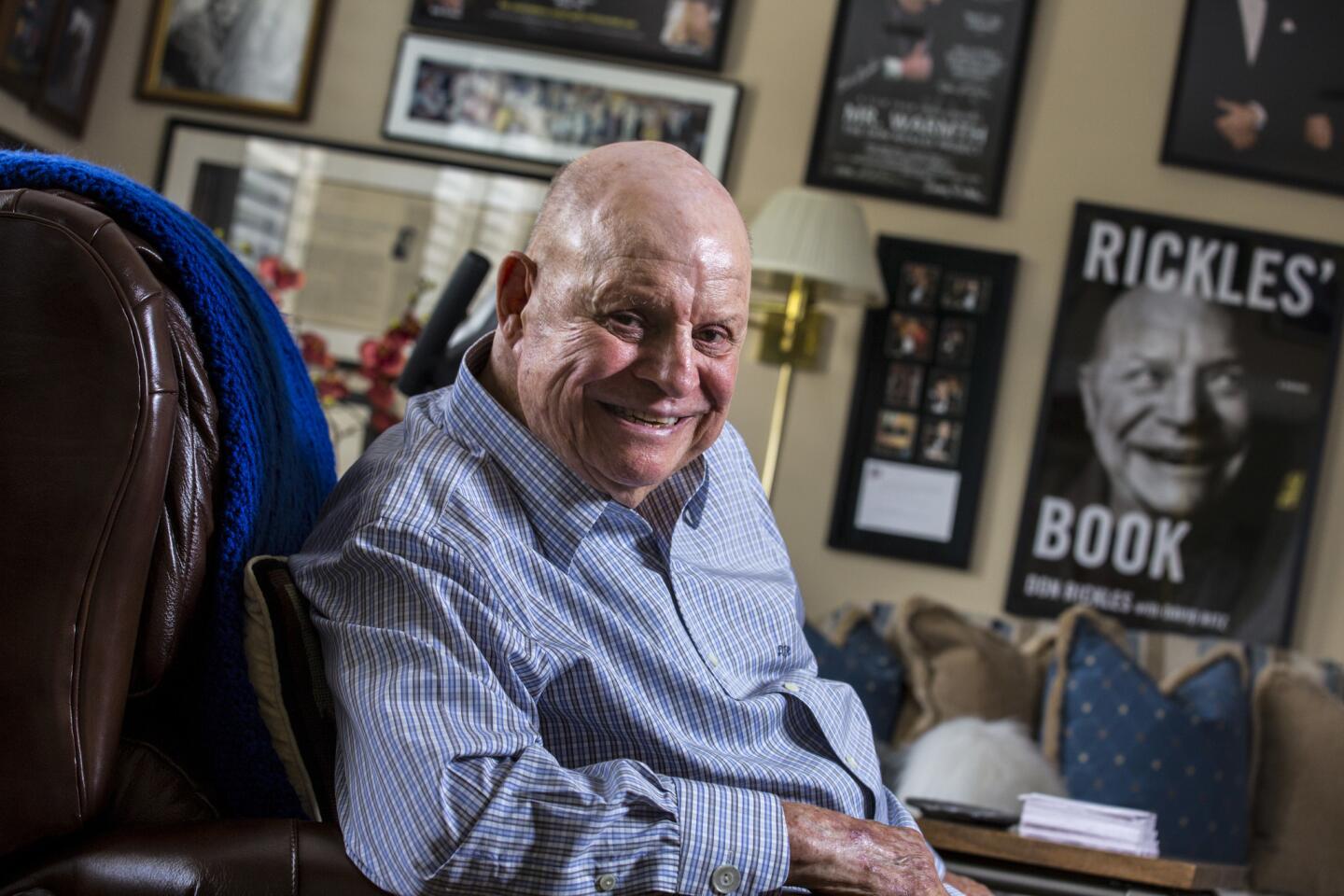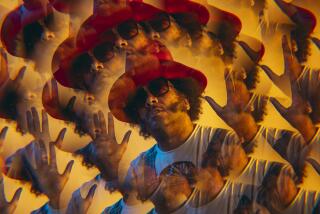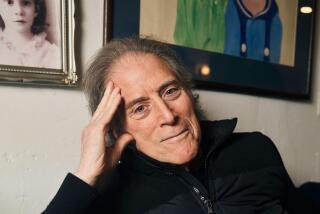Don Rickles, with his zingers and one-liners, showed the folly of fearing differences

Insult comic Don Rickles has died at 90. (April 7, 2017) (Sign up for our free video newsletter here http://bit.ly/2n6VKPR)
It seems wrong somehow to come to praise Don Rickles, who died Thursday at age 90, even as we are about to bury him. The fitting thing would be to cover him in in cutting one-liners — something about his baldness, his bigness, his failed sitcoms — before finally admitting that it’s all in fun, that we come in love, to honor his life and regret his absence. That is how Rickles did it, anyway, for more than half a century.
And you have got to be funny to get away with it.
Rickles! The name itself sounds like 10-foot-high letters on a Las Vegas marquee. A man who would not think of walking on stage in anything short of a tuxedo, he was one of the last of a disappearing generation, the charter class of modern, post-vaudeville, postwar stand-up comedy that made its way into the public eye through small rooms and burlesque clubs. You can’t reckon his loss without reckoning the loss of a way of living and looking at life.
Rickles didn’t set out to be a comic. Out of the Navy, having served in the Pacific theater during World War II, he entered the American Academy of Dramatic Arts. His film and television credits run back into the 1950s and include drama and comedy, and ran forward to Martin Scorsese’s “Casino” and the “Toy Story” franchise, in which he played Mr. Potato Head. In the 1950s, he turned to stand-up as a kind of Plan B, and found his style in failure.
His act started, he told Larry King in a 1985 interview, “out of lack of having an act; many many years ago I stood on the stage and told bad jokes and did Sophie Tucker as an impersonation, and nobody looked up; and suddenly I looked down and said, ‘Sir, I’m getting fed up with you, either you watch or I’m going to suck your neck,’ or words to that effect, and suddenly people started to laugh.
“Now I’m a very big star,” he told King, “and I came on this show as a mercy favor.”
A brusque Buddha whose 1968 debut album was entitled “Hello Dummy,” Rickles burst into public consciousness with salutary aggression, knitted brow and downturned mouth. (Offstage, as seen in his more serious television interviews, he was quiet and thoughtful.) By the standards of mainstream mid-century comedy, he was edgy and outrageous. He turned up the volume and the heat, and converted single-shot comedy into an automatic weapon, mowing down everyone in sight, whether on the dais or in the room. The world was his to roast.
“Marty,” Rickles says at a televised AFI tribute to Scorsese, “You are the most annoying director I ever had…. When we see all the films you did, none of them were great, none of them.” To Milton Berle: “Why do I kid, Milton? Because he’s old — what can he do to me?” To Jerry Lewis: “Why am I here tonight, Jerry? Because you could get hot again.” To Bob Hope, in a tribute to Bob Hope: “I’m so happy for you, but do us a favor, get off the air,” adding, “I don’t get many chances like this and I want to say from the bottom of my heart, don’t call me again.”
Insult comedy didn’t start with Rickles; in any case, it was a label he disdained. (“I never used the word insult,” he told King. “It’s exaggeration and an attitude.”) There is an old tradition of feuding comics playing off each other’s public personalities (Fred Allen and Jack Benny, Bob Hope and Bing Crosby); comedians have long had something to tell you about a spouse or in-law, and a jester could say anything to a king. (“Thou shouldst not have been old till thou hadst been wise” is Shakespeare doing Rickles before the fact.)
Seen now, some of his remarks can seem embarrassingly dated, rooted as they are in 20th century racial and sexual stereotypes and language. Even so, younger comics and crowds for generations adored him, granted him dispensation, grandfathered him in as a representative of the old school.
Although his comedy often skewered difference, whether it was a person’s race or age or religion or some minor quirk of personality or physical characteristic — Rickles would never go after the truly disabled or disadvantaged. It would be a mistake to see his signature ad hominem attack comedy as anything but ironic.
Indeed, the underlying point of his professional ecumenical disregard for his fellow humans is that the very state of being different is something we all share. (“It doesn’t matter to me what you are, you’re a human being,” he says to one lucky, luckless audience member. “I don’t ever want to see you again.”)
What does he leave us? A reminder that we can always take ourselves less seriously. That there is a difference between a jab thrown in knowing jest and one made out of hateful ignorance, and we should be smart enough to know the difference.
All that and a lot of laughs.
@LATimesTVLloyd
ALSO:
From the Archives: Don Rickles talks Frank Sinatra, impersonations and his film debut
From the Archives: ‘It’s important to keep working’: Don Rickles in one of his last interviews
More to Read
The complete guide to home viewing
Get Screen Gab for everything about the TV shows and streaming movies everyone’s talking about.
You may occasionally receive promotional content from the Los Angeles Times.
